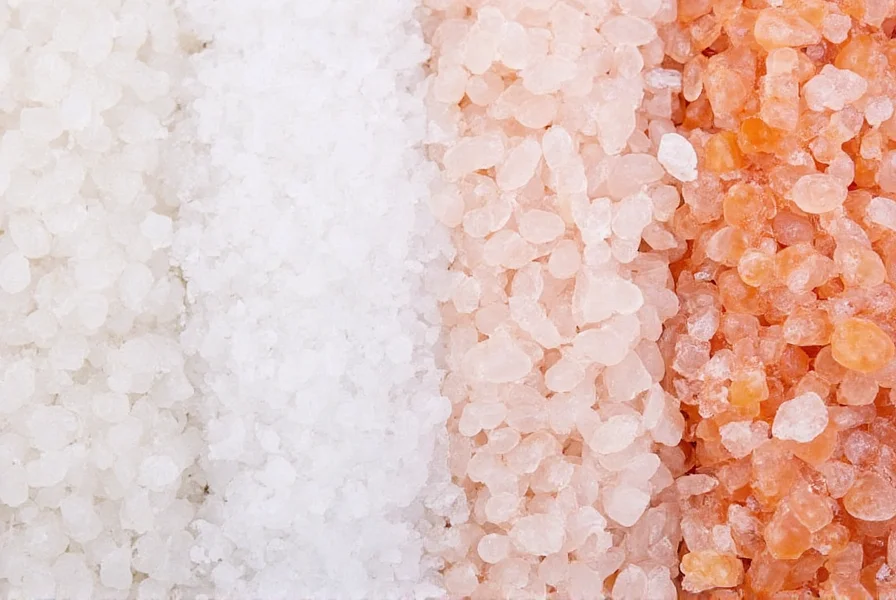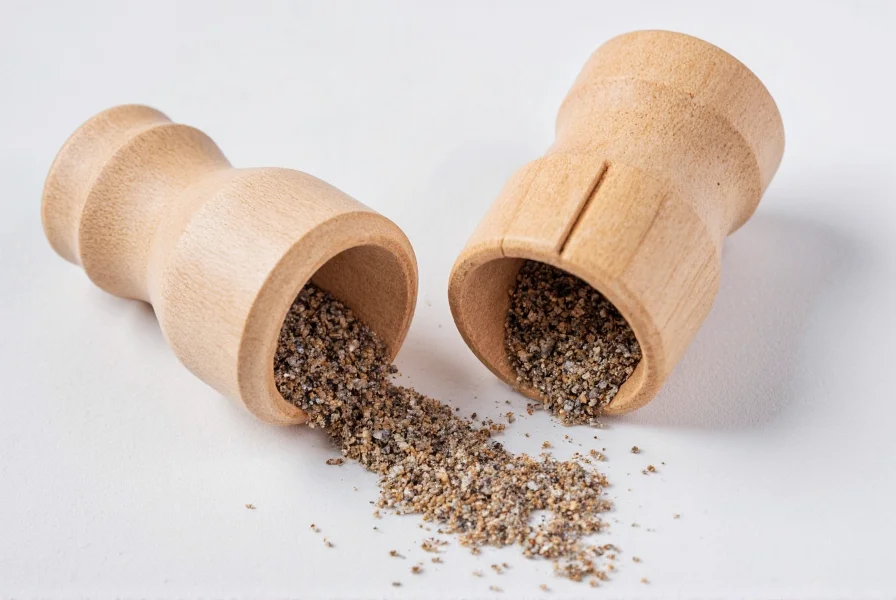Understanding the proper application of salt and pepper transforms ordinary cooking into exceptional culinary experiences. These seasonings aren't merely afterthoughts but essential components that interact with food chemistry to enhance flavors, balance tastes, and create depth in dishes. The science behind their effectiveness lies in how salt suppresses bitterness while enhancing sweetness and umami, and how pepper's piperine compound stimulates taste receptors.
The Historical Significance of Salt and Pepper
Salt has been valued throughout human history, once considered worth its weight in gold and used as currency in ancient Rome (the word 'salary' derives from the Latin 'salarium,' money given to Roman soldiers to buy salt). Pepper, native to South India, was so prized in medieval Europe that it served as collateral and was even accepted as payment for taxes. This historical value explains why these seasonings became the standard pairing found on virtually every dining table worldwide.
Types of Salt Explained for Culinary Use
Not all salts function identically in cooking. Understanding the differences between various salt types helps achieve optimal seasoning results:
| Type of Salt | Texture/Properties | Best Culinary Uses |
|---|---|---|
| Kosher salt | Larger crystals, less dense | General cooking, seasoning meats, rimming glasses |
| Sea salt | Varies by source, often flaky | Finishing dishes, enhancing texture |
| Table salt | Finely ground, often iodized | Baking, recipes specifying table salt |
| Himalayan pink salt | Crystalline, contains trace minerals | Specialty finishing, salt block cooking |
Professional chefs often prefer kosher salt for everyday cooking because its larger crystals make it easier to pinch and control the amount being added. The density difference between salt types means that 1 teaspoon of table salt contains nearly twice the sodium of 1 teaspoon of kosher salt—a crucial consideration when following recipes.

Pepper Varieties and Their Distinct Characteristics
Pepper isn't limited to the standard black variety found in most grinders. Understanding pepper varieties enhances culinary precision:
- Black pepper - Made from unripe green berries that are cooked and dried, developing complex flavor compounds during the process
- White pepper - Produced from ripe berries with the outer layer removed, offering a cleaner heat with less complexity
- Green pepper - Made from unripe berries preserved in brine or freeze-dried, providing a fresher, more herbal note
- Pink pepper - Not true pepper but from a different plant family, offering a fruitier profile with less heat
For maximum flavor impact, always use freshly ground pepper. Pre-ground pepper loses its volatile aromatic compounds quickly, diminishing its complexity and heat. The piperine content responsible for pepper's bite degrades significantly within days of grinding.

Optimal Timing for Adding Salt During Cooking
The timing of salt application dramatically affects food texture and flavor development. When cooking vegetables, salting water properly (approximately 1 tablespoon per quart) seasons from within as they cook. For meats, salting several hours before cooking allows salt to penetrate deeper through diffusion, enhancing both flavor and moisture retention.
Contrary to popular belief, salting meat well in advance (dry brining) improves texture rather than drawing out moisture. The salt initially pulls moisture to the surface, but over time, this brine is reabsorbed along with the salt, resulting in more evenly seasoned, juicier meat. This process works best when salted 12-48 hours before cooking for larger cuts.
Health Considerations of Salt and Pepper Consumption
While essential in cooking, salt consumption requires moderation. The American Heart Association recommends no more than 2,300 mg of sodium daily, ideally moving toward an ideal limit of 1,500 mg. However, not all salt sources are equal—natural salts contain trace minerals that may offer marginal nutritional benefits over highly processed table salt.
Pepper, particularly black pepper, contains piperine which has demonstrated antioxidant and anti-inflammatory properties in studies. Interestingly, piperine also enhances the bioavailability of certain nutrients and compounds, such as curcumin in turmeric, making it valuable beyond its flavor contribution.
Proper Storage Techniques for Maximum Freshness
To maintain optimal quality, store salt in an airtight container away from humidity, which can cause clumping. Salt doesn't spoil but may develop off-flavors if exposed to strong odors. For pepper, whole peppercorns stored in a cool, dark place retain their volatile oils much longer than pre-ground versions—up to 3-4 years versus mere months for ground pepper.
Never store pepper in the refrigerator, as temperature fluctuations introduce moisture that degrades quality. A ceramic or glass container in a dark cupboard provides ideal storage conditions for maintaining pepper's complex flavor profile.
Common Misconceptions About Salt and Pepper
Several myths persist about these fundamental seasonings. Contrary to popular belief, sea salt isn't significantly healthier than table salt—both are predominantly sodium chloride. The trace minerals in sea salt appear in such small quantities that they offer negligible nutritional benefit. Similarly, the notion that you should only add salt at the end of cooking is incorrect; proper seasoning often requires multiple additions throughout the cooking process.
Another misconception involves the salt-to-pepper ratio. While traditionally served in equal portions, the ideal ratio varies significantly by dish. Delicate fish might require minimal pepper with careful salting, while robust stews benefit from more generous pepper application. Understanding these nuances separates competent cooking from truly exceptional results.
Practical Tips for Home Cooks
Develop your seasoning skills with these practical techniques:
- Season in layers—add salt at multiple stages of cooking rather than all at once
- Use your fingers to pinch salt, which provides better control than shaking from a container
- Always taste before final seasoning to avoid over-salting
- Invest in a quality pepper mill that allows adjustment of grind size
- Toast whole peppercorns briefly in a dry pan before grinding for enhanced aroma
Frequently Asked Questions
What's the difference between kosher salt and sea salt?
Kosher salt has larger, irregular crystals that dissolve quickly and provide excellent control when seasoning. Sea salt varies by source but often has flakier crystals and may contain trace minerals. The main difference is texture and crystal structure, not sodium content, though kosher salt is less dense so you get less sodium by volume compared to table salt.
Why should I use freshly ground pepper instead of pre-ground?
Freshly ground pepper retains volatile aromatic compounds that give pepper its complex flavor and heat. Pre-ground pepper loses these compounds quickly—within days—resulting in diminished flavor and less pronounced heat. The piperine content responsible for pepper's characteristic bite degrades significantly after grinding.
When is the best time to add salt when cooking?
The optimal timing depends on what you're cooking. For meats, salting 12-48 hours in advance (dry brining) allows deeper penetration and improves moisture retention. For vegetables, add salt to cooking water to season from within. Soups and stews benefit from seasoning in layers throughout cooking, with final adjustments before serving.
Does the type of salt affect baking results?
Yes, salt type matters in baking. Table salt's fine crystals dissolve more readily in batters and doughs, making it preferable for most baking applications. Using kosher salt in baking without adjusting the quantity can result in under-seasoned products since its larger crystals mean less sodium by volume. Always follow recipe specifications for salt type in baking for best results.
How should I store salt and pepper for maximum freshness?
Store salt in an airtight container away from humidity to prevent clumping. Whole peppercorns maintain freshness for 3-4 years when stored in a cool, dark place in a ceramic or glass container. Ground pepper loses potency within months, so buy in small quantities. Never store pepper in the refrigerator due to moisture concerns.











 浙公网安备
33010002000092号
浙公网安备
33010002000092号 浙B2-20120091-4
浙B2-20120091-4